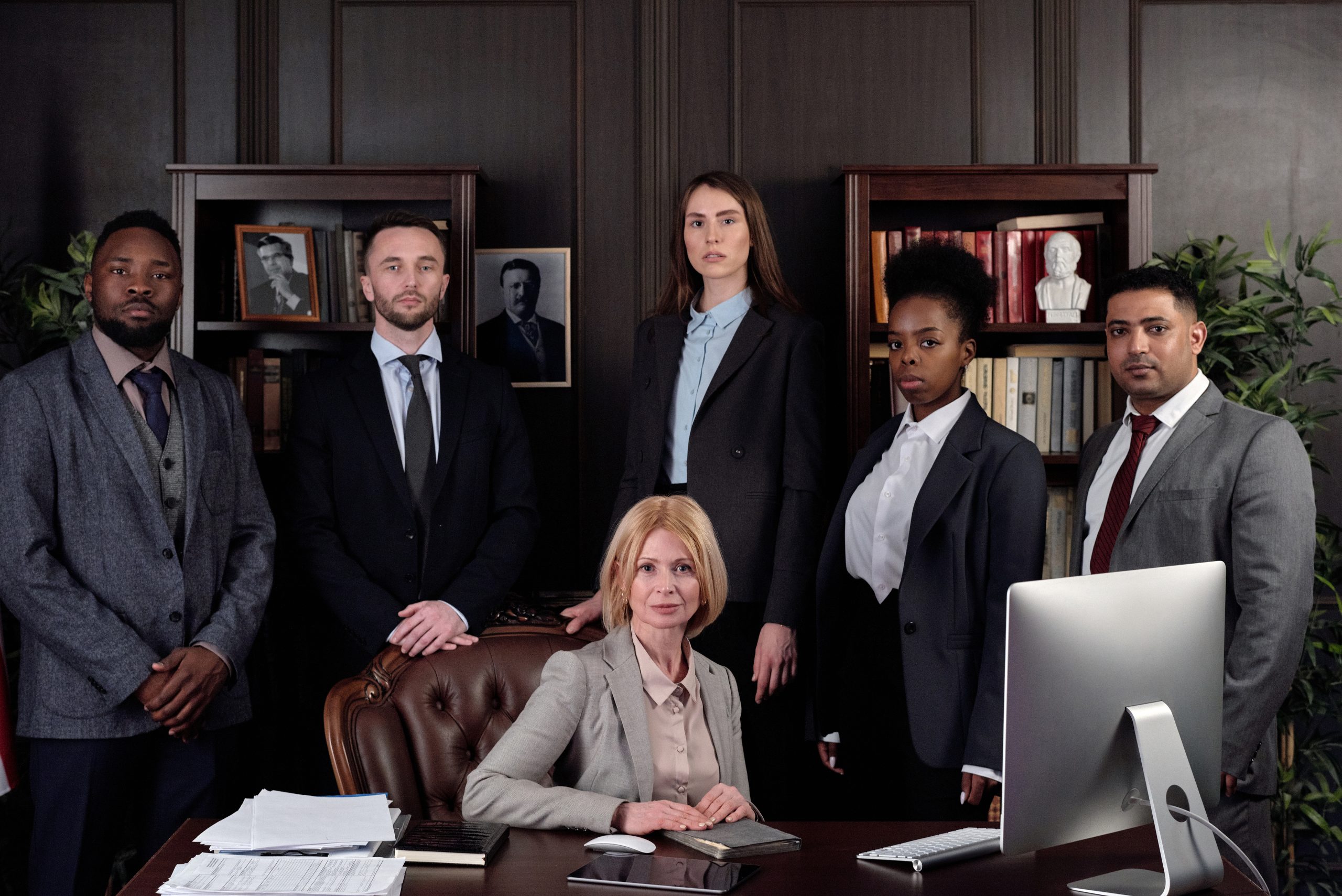As a business owner, you understand the importance of protecting your company’s interests and ensuring compliance with all legal requirements. But when facing criminal charges or accusations, navigating the complex world of criminal defense can be daunting. That’s where a skilled defense counsel comes in. With their expertise and experience, they can guide you through the legal process, protecting your rights and advocating for your best interests. In this article, we will explore the crucial role of a defense counsel and provide answers to commonly asked questions, giving you a comprehensive understanding of how they can help you navigate the intricacies of the legal system. If you find yourself in need of expert legal representation, don’t hesitate to reach out to the lawyer listed on our website for a consultation today. Your business and reputation are too valuable to leave to chance.
Defense Counsel
What is Defense Counsel?
Defense counsel, also known as defense attorneys or criminal defense lawyers, are legal professionals who specialize in representing individuals or organizations accused of committing a crime. Their main role is to ensure that their clients receive fair treatment in the criminal justice system and to mount a strong defense against the charges they are facing.
Defense counsel work closely with their clients to gather evidence, conduct legal research, and develop a defense strategy to protect their rights and interests. They play a crucial role in safeguarding the principles of justice and ensuring that all individuals, regardless of their circumstances, have access to a fair and unbiased legal process.
Importance of Defense Counsel
The importance of defense counsel in the criminal justice system cannot be overstated. They serve as the advocates for individuals who are facing criminal charges, ensuring that their rights are protected throughout the legal process. Here are a few key reasons why defense counsel is vital:
-
Presumption of Innocence: In many legal systems, individuals are presumed innocent until proven guilty. Defense counsel ensures that this fundamental principle is upheld and works tirelessly to challenge the prosecution’s evidence and arguments.
-
Protects Against Government Abuse: Defense counsel acts as a check against the immense power of the government. They ensure that law enforcement agencies and prosecutors follow proper procedures, gather evidence legally, and respect their clients’ constitutional rights.
-
Expert Legal Knowledge: Defense counsel possesses extensive legal knowledge and expertise in criminal law. They understand the nuances of the law, legal procedures, and the rules of evidence. This knowledge allows them to identify weaknesses in the prosecution’s case and build a strong defense strategy.
-
Negotiating Plea Deals: In some cases, it may be in the best interest of the accused to pursue a plea deal. Defense counsel can negotiate with the prosecution to secure reduced charges or lesser penalties, potentially helping their clients avoid lengthy trials and harsh punishments.
-
Emotional Support: Facing criminal charges can be a stressful and overwhelming experience. Defense counsel provides emotional support to their clients, guiding them through the legal process, and ensuring they feel heard and understood.

Qualities of a Good Defense Counsel
When choosing a defense counsel, it is essential to consider their qualities and characteristics. Here are some qualities that distinguish a good defense counsel:
-
Experience: A good defense counsel should have a wealth of experience in handling criminal defense cases. Experience allows them to navigate the system effectively, anticipate challenges, and devise effective defense strategies.
-
Excellent Communication Skills: Defense counsel must be able to effectively communicate with their clients and clearly explain complex legal concepts. They should also be persuasive communicators in the courtroom, presenting arguments and evidence in a compelling manner.
-
Analytical and Strategic Thinking: Defense counsel must possess strong analytical and strategic thinking skills to identify the strengths and weaknesses of the prosecution’s case. They can then develop a robust defense strategy to counter the charges against their clients.
-
Legal Knowledge: A good defense counsel should have a deep understanding of criminal law, including relevant statutes, precedents, and legal procedures. They continuously stay updated on current laws and legal developments in order to provide the best defense possible.
-
Empathy and Compassion: Dealing with criminal charges can be emotionally challenging for individuals. A good defense counsel should possess empathy and compassion, providing support and reassurance to their clients throughout the legal process.
Roles and Responsibilities of Defense Counsel
Defense counsel assumes several crucial roles and responsibilities in representing their clients. Some of the primary roles and responsibilities include:
-
Investigation: Defense counsel conducts a thorough investigation of the case, gathering evidence, interviewing witnesses, and analyzing forensic reports. This investigation helps build a strong defense strategy and exposes any weaknesses in the prosecution’s case.
-
Legal Advice: Defense counsel provides their clients with expert legal advice at every stage of the criminal justice process. They guide their clients on their rights, potential defenses, and the potential outcomes of the case.
-
Plea Bargaining: In cases where a trial may not be in the best interest of the accused, defense counsel negotiates with the prosecution to secure a favorable plea deal. They advocate for reduced charges or penalties to minimize the impact on their clients’ lives.
-
Courtroom Representation: Defense counsel represents their clients in court proceedings, including bail hearings, arraignments, pre-trial motions, and trials. They present arguments, cross-examine witnesses, and challenge the prosecution’s evidence.
-
Strategy Development: Based on their analysis of the case, defense counsel develops a strategic defense approach tailored to the specific circumstances. They determine which legal defenses to raise, which evidence to present, and how to best protect their clients’ rights and interests.
Types of Defense Counsel
There are different types of defense counsel specialized in various areas of law. Here are a few common types of defense counsel:
-
Criminal Defense Attorney: Criminal defense attorneys represent individuals accused of committing criminal offenses, ranging from minor infractions to serious felonies. They handle a broad range of cases, including drug offenses, assault, theft, DUI, and white-collar crimes.
-
Public Defender: Public defenders are defense counsel provided by the government to individuals who cannot afford to hire private attorneys. They handle a high volume of cases and represent individuals facing criminal charges at no cost.
-
Appellate Attorney: Appellate attorneys focus on appeals, representing clients who want to challenge their conviction or sentencing. They review trial records, identify legal errors, and draft appeals briefs to present to higher courts.
-
Civil Rights Attorney: Civil rights attorneys specialize in defending individuals whose constitutional rights have been violated by law enforcement agencies or other government entities. They work to hold these entities accountable and seek remedies for their clients’ damages.
Choosing the Right Defense Counsel
Choosing the right defense counsel can greatly impact the outcome of a criminal case. Here are some factors to consider when hiring defense counsel:
-
Experience: Look for defense counsel with significant experience handling cases similar to yours. Experience in the relevant area of law ensures that the attorney is familiar with the intricacies of the legal process and can mount an effective defense.
-
Reputation: Research the attorney’s reputation by reading client testimonials and reviews, as well as checking their professional track record. A positive reputation is indicative of the attorney’s proficiency and commitment to their clients.
-
Communication: Effective communication is crucial when working with defense counsel. Ensure the attorney is responsive, attentive, and able to explain complex legal concepts in a manner that you understand.
-
Fee Structure: Discuss the attorney’s fee structure upfront and ensure that it aligns with your budget and preferences. Some attorneys charge hourly rates, while others may offer a flat fee or contingency-based fees.
-
Compatibility: Building a good working relationship with your defense counsel is vital. Choose an attorney you feel comfortable with and confident in, as you will be relying on their guidance and support throughout the legal process.

Frequently Asked Questions about Defense Counsel
-
Do I need a defense counsel if I am innocent? Yes, hiring a defense counsel is crucial even if you believe you are innocent. Defense counsel will help protect your rights, analyze the evidence against you, and develop a strong defense strategy.
-
Should I hire a public defender or a private defense counsel? Public defenders are a viable option if you cannot afford a private defense counsel. However, private defense counsel often offer more personalized attention and time dedicated to your case.
-
How long does a defense counsel stay involved in a case? The involvement of defense counsel depends on the complexity of the case. They can be involved from the arrest stage until the conclusion of the trial or negotiate plea deals.
-
Can defense counsel guarantee an acquittal? No, defense counsel cannot guarantee an acquittal. However, they will use their expertise to build a strong defense and advocate for the best possible outcome for their clients.
-
What if I cannot afford to hire a defense counsel? If you cannot afford a defense counsel, you may be eligible for a public defender appointed by the court. Public defenders provide legal representation to individuals who cannot afford an attorney.
Conclusion
Defense counsel play a crucial role in the criminal justice system, ensuring that individuals facing criminal charges receive fair treatment and have their rights protected. Their expertise, knowledge of the law, and dedication to their clients help level the playing field between the accused and the prosecution. When choosing defense counsel, consider their experience, reputation, communication skills, and compatibility. Remember, having a skilled defense counsel by your side can greatly influence the outcome of your case.

Call-to-Action
If you or your business is facing criminal charges, do not hesitate to seek the expertise of our highly-skilled defense counsel. With years of experience representing businesses and business owners, our firm is well-equipped to protect your interests and mount a robust defense. Contact us today for a consultation and let us guide you through the legal process with confidence and expertise.





